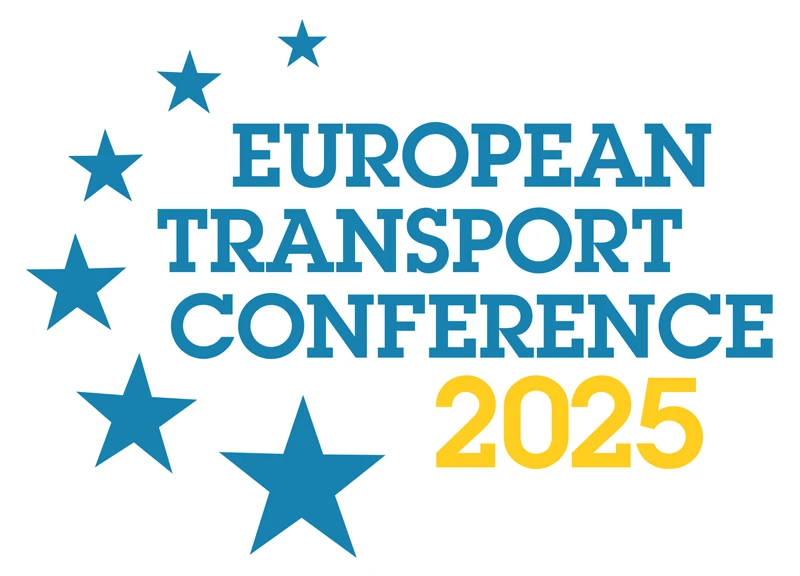-
Past ETC Papers

Browse, search and view papers from the past AET Conferences.
-
Members' Area

AET promotes networking and exchange of ideas, information and opportunities amongst members.
Conference Papers 2024
Antwerp, Belgium
ETC Conference Papers 2024
Analysing long-distance transport: Simulating policies to reduce domestic air travel in an intermodal travel demand model for Germany
Seminar
Day 1 (18 Sep 2024), Session 3, Modelling long distance, 16:00 - 18:00
Status
Accepted, documents submitted
Submitted by / Abstract owner
Marc Dziakowski
Authors
Marc Dziakowski, Deutschen Zentrum fuer Luft und Raumfahrt (presenter)
Nina Thomsen, Deutschen Zentrum fuer Luft und Raumfahrt
Tudor Mocanu, Deutschen Zentrum fuer Luft und Raumfahrt
Short abstract
The study outlines a methodology for simulating policy measures related to domestic air travel in the German national transport model DEMO. The model can be used to simulate long-distance travel, including first and last mile and intermodal transfers
Abstract
Air travel plays a vital role in facilitating global connectivity and economic growth; however, its operations have a significant environmental impact, primarily due to its greenhouse gas emissions and consequent contribution to climate change. Of particular concern are short-haul flights, which have come under increasing scrutiny for their environmental impact and due to the availability of more sustainable alternatives. In response to this growing concern, a number of policy initiatives have been launched with the aim of reducing domestic air travel. One example is the introduction of higher kerosene taxes in Germany from 2024, which are expected to lead to higher ticket prices and further increase the economic pressure on customers. Other initiatives could focus on intermodality and the integration of rail as reliable feeder mode for long-distance flights.
Transport models can play a vital part in developing and evaluating these policies, quantifying the effects on travel demand and level of service indicators like travel times and costs. Comprehensive modelling tools that can depict intermodal transport are essential to effectively address the complex interplay between travel behaviour and sustainability. While current air traffic datasets often lack information beyond airport-to-airport connections, travel demand models are able to depict the complete trip from origin to destination, which can impact the set of alternatives for a domestic flight.
The German national transport model DEMO (DEutschland MOdell – Germany model) is a suitable tool to address the topic of domestic air travel and its alternatives. DEMO employs a macroscopic travel demand model that adopts a conventional four-step approach to simulate passenger transport, as outlined by Winkler and Mocanu (2017). DEMO is able to depict all trips within Germany, including road, rail and air transport. The travel demand is calculated based on travel times and costs of the different modes in the model using the national household travel survey MiD 2017 (infas 2019) as a baseline for calibration. Due to the size of Germany, DEMO consists of multiple individual modules, such as long-distance and local transport.
For the purpose of simulating policy measures in air transport, these modules were combined to facilitate accurate intermodal routing and identify alternatives to national air travel. Furthermore, air traffic data was incorporated to improve the depiction of air travel. In order to depict intermodal trips, DEMO is supplied with a network connecting airports, stations and passenger transport hubs to the origins and destinations of the trips using a supply model. Furthermore, this network enables transfers between means of transport at hubs during routing. DEMO can now be applied for the identification of changes in travel behaviour in regard to air traffic regulation. In addition, the model can simulate new strategies to shift domestic air traffic towards more environmentally friendly alternatives.
Literature:
Winkler, C.; Mocanu, T. (2017): Methodology and Application of a German National Passenger Transport Model for Future Transport Scenarios. In: Proceedings of the 45th European Transport Conference. European Transport Conference, 4.-6. Oct 2017, Barcelona, Spain.
infas, DLR, IVT, infas 360, Mobility in Germany: Short report, Bonn, Berlin, 2019.
Programme committee
Transport Models
Topic
Transport planning analysis and models
Documents:

Association For
European Transport
Forester House
Doctors Lane
Henley-in-Arden
Warwickshire, UK
B95 5AW
+44 (0) 15 64 793552
VAT number: 710 1866 64
Conference Supporters & Endorsers




Legal Entity
The Association for European Transport is registered as an Association ('vereniging') with the Chamber of Commerce for Haaglanden in The Netherlands under company number 27170096.
Built on Zenario




